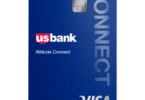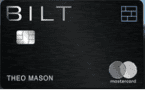Chase offers something called Chase Private Client (CPC), there isn’t a lot of information about this program on the internet so I thought it would be useful to write a detailed article on the program. It’s described as being a combination of concierge banking along with the investment expertise of J.P. Morgan.
Who Qualifies For CPC?
To be considered for CPC you need to hold a deposit account with Chase (e.g checking or savings account). They frequently offer sign up bonuses for these accounts, so make sure you use one of those (even if they aren’t available publicly they can be purchased from eBay). You also need an average daily balance of $250,000 or more in any combination of linked deposits and investments.
That being said there is actually only a minimum of $100 to open and CPC bankers have the right to give you CPC status before you hit the $250,000 requirement and give you some time to meet this requirement. This is really only done for customers who have a history with Chase and their personal bankers already and CPC bankers do not have to extend this courtesy.

Benefits Of CPC
There are numerous benefits for being a CPC, below is a list of the more popular benefits:
Chase 5/24 rule does not applyNo longer works- Increased sign up bonuses on some Chase credit cards (you can view what they are currently offering by clicking here)
- Chase Private Client Arts & Culture program (free admission to museums, via FWF):
- No Chase Fee at non-Chase ATMs (including international ATMs). They will also refund ATM operator fees up to five times per statement cycle.
- No fee for non-ATM Cash transactions (e.g obtaining cash from a teller using Chase debit card)
- No exchange rate adjustment fee for debit card purchases and ATM withdrawals in currencies other than U.S. dollars
- No Chase fee for all domestic and foreign wire transfers, incoming or outgoing, completed at any Chase branch, chase.com, via telephone or email (must complete and sign a Chase Private Client Wire Transfer agreement before being able to request wire transfers by telephone or e-mail)
- No fee for counter checks, money orders or cashier’s checks
- No fee for personal style checks whenordered through Chase; fees may apply for certain other supplies and expedited shipping options
- No fees for stop payments
- No fees on deposited items returned, cashed checks returned and collections (domestic and international)
- No fees for insufficient funds and returned items, Overdraft Protection Transfers or extended overdraft.
- No monthly fee (waived on linked savings accounts and linked business accounts)
- No annual fee on 3×5 or smaller Safe Deposit box (subject to availability) and 20% off other sizes
- Discount of $750 on closing costs on all loans
- Leverage our best rate when you purchase a home with the Chase Private Client Mortgage Rate Purchase Program (based on your total deposits and investments with Chase
- Dedicated priority processing and senior underwriting support for loans
- Discounts for Home Equity Lines of Credit
- Direct access to Customer Service Specialists
Sharing CPC
Amol from Travel Codex has a great post on how to share your CPC status with family. The basics are that this is possible due to ‘Family Member Privileges‘:
Family members of Private Clients can also take advantage of these benefits. For this, you must be joint owners of a Chase Private Client Checking or a Chase Private Client Savings account. Your family members’ accounts must be upgraded to a Chase Private Client account to receive product and rate privileges. Minors under the age of 18 cannot be owners of a Chase Private Client Checking account and therefore cannot receive all the benefits of Chase Private Client.
Apparently being a co-signer on a safety deposit box (remember 3×5 or smaller is free) will also trigger CPC status.
Final Thoughts
You can find more information about CPC by looking in this information booklet. Is CPC worth it? That really depends on how much you value the benefits, personally the only real value I see is overcoming Chase 5/24 rules and the increased credit card sign up bonuses. Most other features can be found at other banks for free or with less stringent deposit requirements. I’m always wary about actively managed funds as well, as a low fee fund will almost always outperform it – but each to their own. Apparently you don’t need to have the funds actively managed by J.P. Morgan to qualify.
If you have any experience with CPC or have any questions, please feel free to ask in the comments section below.
Related: Using Chase Private Client Status to Get Approved for Credit Cards






